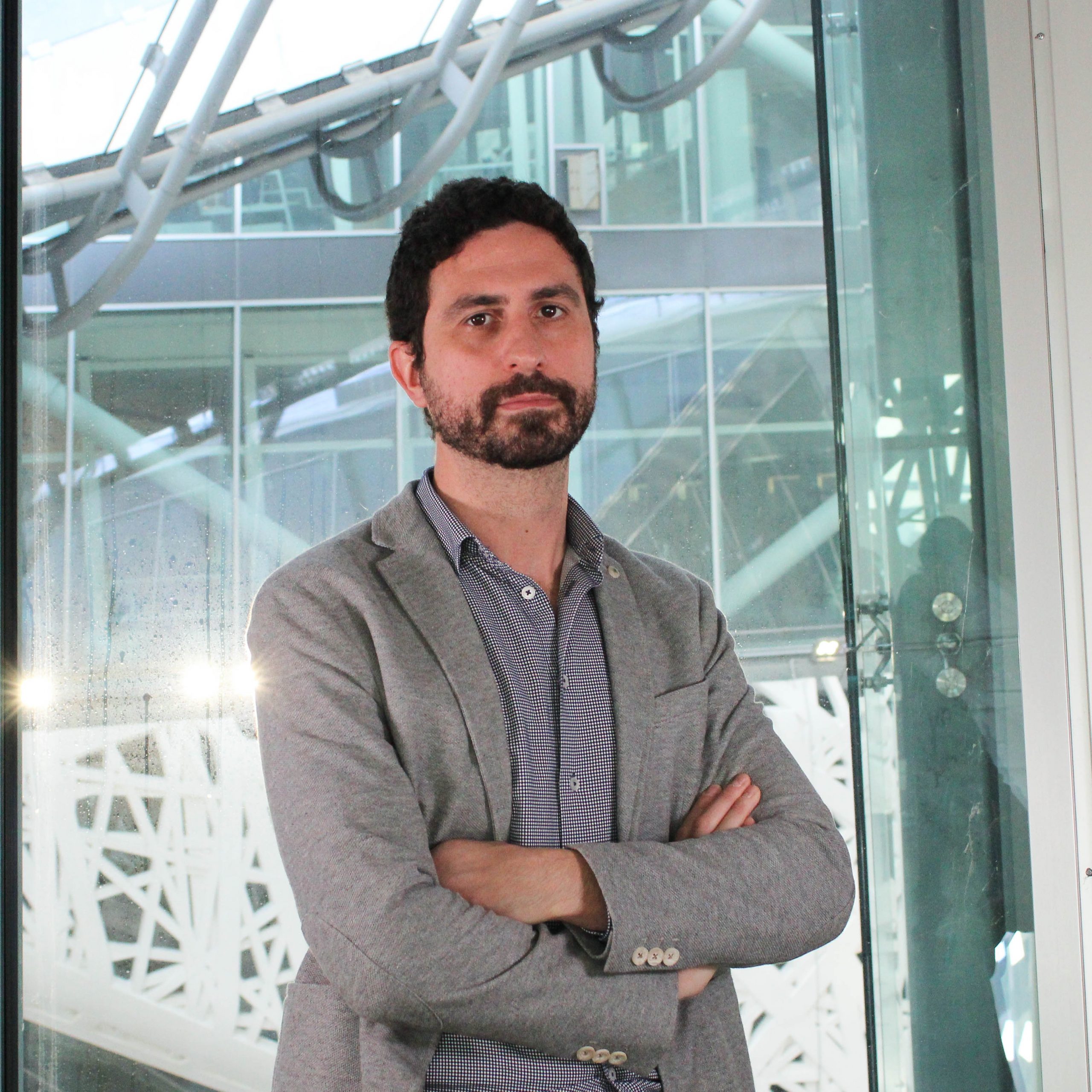
Andrea Sottoriva
- Head of Computational Biology Research Centre, Computational biology
- Research Group Leader, Sottoriva Group
Andrea Sottoriva is the Head of the Computational Biology Research Centre at Human Technopole.
Andrea’s research focusses on the development of new computational approaches to measure cancer evolution in patients, with the aim of predicting the future course of the disease. Andrea’s lab also integrates patient-derived experimental models and multiomics data, with evolutionary methods to design new treatment strategies that aim at preventing and controlling drug resistance.
After graduating in Computer Science at the University of Bologna in 2006, he obtained a master in Computational Sciences from the University of Amsterdam in 2008. During his studies, he worked in neutrino physics at the Department of Physics of the University of Bologna and at the Institute for Nuclear and High Energy Physics (NIKHEF) in the Netherlands as a research assistant.
In 2012 he completed his PhD in Computational Biology from the University of Cambridge, where he worked at the Cancer Research UK research centre.
After postdoctoral work at the University of Southern California, he started his lab at the Institute of Cancer Research in London in 2013, where in 2018 he became the Deputy Director of the Centre for Evolution and Cancer and then the Director in 2020.
He authored several studies published in prestigious scientific journals, including Science, Nature, Nature Genetics and Cancer Discovery. Among his articles are “The co-evolution of the genome and epigenome in colorectal cancer” (Nature, 2022), “Phenotypic plasticity and genetic control in colorectal cancer evolution” (Nature, 2022), “Subclonal reconstruction of tumors by using machine learning and population genetics” (Nature Genetics, 2020), “Detecting repeated cancer evolution from multi-region tumor sequencing data” (Nature Methods, 2018), “Longitudinal liquid biopsy and mathematical modelling of clonal evolution forecast waiting time to treatment failure in a phase II colorectal cancer clinical trial” (Cancer Discovery, 2018), and “Patient-derived organoids model treatment response of metastatic gastrointestinal cancers” (Science, 2018).
In 2016 he was awarded the Cancer Research UK Future Leaders in Cancer Research prize.
Contacts
Follow on
Selected Publications
-
08/2024 - Nature
The genomic landscape of 2,023 colorectal cancers
Colorectal carcinoma (CRC) is a common cause of mortality1, but a comprehensive description of its genomic landscape is lacking2,3,4,5,6,7,8,9. Here we perform whole-genome sequencing of 2,023 CRC samples from participants in the UK 100,000 Genomes Project, thereby providing a highly detailed somatic mutational landscape of this cancer. Integrated analyses identify more than 250 putative CRC […]
-
07/2024 - Nature Cancer
Tumor evolution metrics predict recurrence beyond 10 years in locally advanced prostate cancer
Cancer evolution lays the groundwork for predictive oncology. Testing evolutionary metrics requires quantitative measurements in controlled clinical trials. We mapped genomic intratumor heterogeneity in locally advanced prostate cancer using 642 samples from 114 individuals enrolled in clinical trials with a 12-year median follow-up. We concomitantly assessed morphological heterogeneity using deep learning in 1,923 histological sections […]
-
03/2023 - Nature Genetics
Immune selection determines tumor antigenicity and influences response to checkpoint inhibitors
In cancer, evolutionary forces select for clones that evade the immune system. Here we analyzed >10,000 primary tumors and 356 immune-checkpoint-treated metastases using immune dN/dS, the ratio of nonsynonymous to synonymous mutations in the immunopeptidome, to measure immune selection in cohorts and individuals. We classified tumors as immune edited when antigenic mutations were removed by […]
-
10/2022 - Nature
Phenotypic plasticity and genetic control in colorectal cancer evolution
Genetic and epigenetic variation, together with transcriptional plasticity, contribute to intratumour heterogeneity1. The interplay of these biological processes and their respective contributions to tumour evolution remain unknown. Here we show that intratumour genetic ancestry only infrequently affects gene expression traits and subclonal evolution in colorectal cancer (CRC). Using spatially resolved paired whole-genome and transcriptome sequencing, […]
-
10/2022 - Nature
The co-evolution of the genome and epigenome in colorectal cancer
Colorectal malignancies are a leading cause of cancer-related death1 and have undergone extensive genomic study2,3. However, DNA mutations alone do not fully explain malignant transformation4,5,6,7. Here we investigate the co-evolution of the genome and epigenome of colorectal tumours at single-clone resolution using spatial multi-omic profiling of individual glands. We collected 1,370 samples from 30 primary cancers and […]